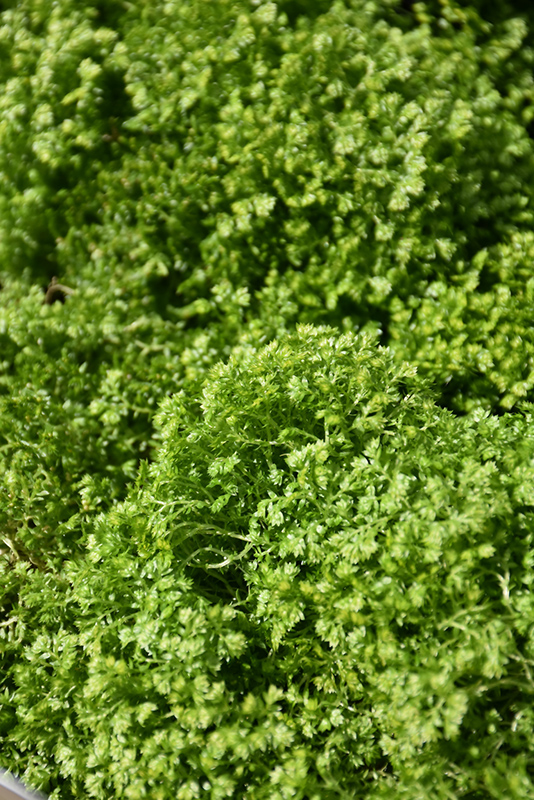Plant Finder
Brownii Spikemoss
Selaginella kraussiana 'Brownii'
Height: 6 inches
Spacing: 8 inches
Sunlight:
![]()
![]()
Other Names: Mounding Spikemoss, Arborvitae Fern, Clubmoss
Description:
A beautiful fern-like variety that forms a low, mounded cushion of whorled green foliage; creates interesting contrast and texture in the garden; perfect for dish gardens, or terrariums; provide a humid environment
Features & Attributes
Brownii Spikemoss' attractive ferny leaves emerge light green, turning bluish-green in color throughout the year on a plant with a mounded habit of growth.
This is a dense herbaceous evergreen houseplant with a mounded form. Its extremely fine and delicate texture is quite ornamental and should be used to full effect. This plant should not require much pruning, except when necessary to keep it looking its best.
Planting & Growing
When grown indoors, Brownii Spikemoss can be expected to grow to be only 6 inches tall at maturity, with a spread of 10 inches. It grows at a medium rate, and under ideal conditions can be expected to live for approximately 10 years. This houseplant performs well in both bright or indirect sunlight and strong artificial light, and can therefore be situated in almost any well-lit room or location. It prefers to grow in average to moist soil. The surface of the soil shouldn't be allowed to dry out completely, and so you should expect to water this plant once and possibly even twice each week. Be aware that your particular watering schedule may vary depending on its location in the room, the pot size, plant size and other conditions; if in doubt, ask one of our experts in the store for advice. It is not particular as to soil pH, but grows best in rich soil. Contact the store for specific recommendations on pre-mixed potting soil for this plant.
There are many factors that will affect the ultimate height, spread and overall performance of a plant when grown indoors; among them, the size of the pot it's growing in, the amount of light it receives, watering frequency, the pruning regimen and repotting schedule. Use the information described here as a guideline only; individual performance can and will vary. Please contact the store to speak with one of our experts if you are interested in further details concerning recommendations on pot size, watering, pruning, repotting, etc.




